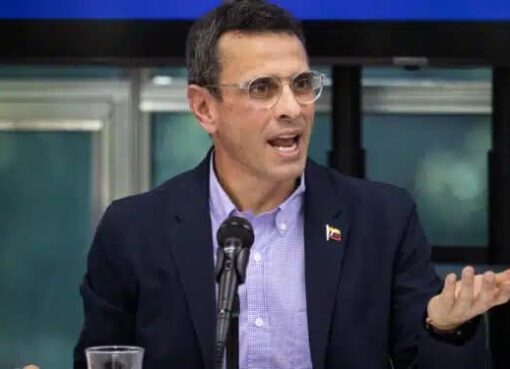A check stands on the chessboard
In an effective political leader, a clear purpose must be interpreted in the intentionality of his actions, and in the same way, the congruence between the discourse and the action is necessary to establish a consistent and reliable example.
(José Gabriel Carrasco Ramirez)
Political management, from my point of view, involves the set of actions, strategies, and decisions that political leaders take to transform the material reality of a society with the aim of improving the living conditions of citizens and enhancing their possibilities of achieving fullness. This political management approach focuses on creating optimal conditions for the comprehensive development of individuals and society as a whole. To achieve successful political management, effective leadership is required.
An effective political leader is one who demonstrates outstanding skills and qualities in the management and direction of political affairs and is capable of achieving positive results both at the level of public policies and in building consensus and effective relationships with society.
In the complex development of political leadership, the effectiveness of a leader is intrinsically linked to the clarity of his purpose, the intentionality of his actions, and the congruence between his speech and action. These fundamental elements not only define the quality of leadership but also directly influence the perception and trust of citizens.
A clear purpose is essential for an effective political leader, as it provides a moral and directional compass for his actions. This purpose acts as a beacon that guides the leader’s decisions and policies, establishing an ethical framework. When the purpose is transparent, citizens can understand the motivations behind decisions, which fosters trust and emotional connection with the leader.
However, having a clear purpose is not enough. Intentionality in the leader’s actions is crucial to translating that purpose into tangible results.
Intentionality involves not only policy execution but also attention to detail, evaluation of consequences, and adaptability to changing situations. A well-intentioned political leader demonstrates commitment and dedication to achieving his goals, which strengthens his image as an effective and visionary leader.
Congruence between speech and action is another essential pillar of effective political leadership. Public trust is quickly eroded when there is a clear discrepancy between what a leader says and what he or she does. Consistency in words and actions generates credibility and authenticity. Citizens look for leaders who not only articulate attractive visions but who back up those words with concrete and consistent actions.
When a political leader demonstrates consistency, he sends a clear message of trustworthiness and honesty. Society perceives the leader as someone who can be trusted, which is essential to establishing a healthy relationship between rulers and the governed. Additionally, congruence strengthens social cohesion by promoting a sense of unity and shared purpose.
Ultimately, the relationship between a clear purpose, intentionality in actions, and congruence between speech and action creates a virtuous circle in political leadership. A clear purpose guides actions, intentionality ensures effective execution, and congruence builds trust. In turn, public trust reinforces support for the proposed policies and the authority of the leader.
Leadership qualities have been a reason for reflection since ancient times, something that we can find in the approach used by Sun Tzu in “The Art of War.”
The concept of “command” in Sun Tzu’s “The Art of War” refers to the person who leads the troops in war. This figure is crucial for the success or failure of a military campaign.
In the book “The Art of War,” “command” is written in Chinese characters aszhǐ mix (指揮). The first part, zhǐ (指), means “point” or “point,” while the second part, Hi (揮), means “to stir” or “to guide.” Together, these two words refer to the action of pointing or guiding others in a certain direction, reflecting the commander’s role in leading troops in war. These Chinese characters are commonly used in Chinese literature and culture to refer to the idea of “command” or “leadership” in general.
Sun Tzu highlights the importance of qualities such as wisdom, humility, empathy, discipline, and adaptability—conditions that effective leaders must possess. He also mentions the importance of strategic planning, the ability to evaluate competitors, and knowledge of the terrain in which the fight takes place.
An effective leader in this situation must be able to develop a clear and effective strategy to achieve their goals while maintaining the cohesion and motivation of their team.
In addition to the qualities mentioned by Sun Tzu, an effective political leader must be a good communicator, have a deep understanding of the political and social situation in which he or she operates, be willing to take calculated risks to achieve key objectives, and therefore must be able to gain and maintain the support of the population, even in conditions of great adversity.
Effective leadership refers to the ability of a leader to inspire, motivate, and guide a group of people towards achieving a common objective and obtaining the expected results through the most suitable means. Being an effective leader entails having a clear and comprehensive vision of the environment and objectives, being able to communicate this directly and persuasively, and making consulted, wise, and well-informed decisions. He or she must also be able to build and maintain positive relationships with followers and be a role model in terms of ethical and moral behavior. Effective leadership involves being able to adapt to changing situations, being flexible, and willing to continually learn and improve. In short, an effective leader is one who has the ability to guide and motivate others to achieve collective goals efficiently and effectively.
Effective leadership is a crucial element in any organization, whether in the military, political, business, or social sphere.
Sun Tzu highlights the importance of leadership in winning a war and offers valuable teachings that can be applied in different contexts.
First, an effective leader must have a clear and strategic vision. This involves having a deep understanding of the current situation and the possible consequences of the actions taken. The leader must be able to make difficult decisions and act with determination, always keeping the objective in mind. This can be applied in politics, where a leader must have a long-term vision and be able to make difficult but necessary decisions for the well-being of his country and his people.
Secondly, citizen legitimation is essential for effective leadership. A leader must be seen as legitimate by the people he leads. This involves maintaining open and honest communication with citizens, listening to their needs and concerns, and acting accordingly. A leader who cares about the people around him and works to achieve their common benefit will be respected and supported by them. This is applicable in any area, whether political, business, or social.
And third, an effective leader must be able to inspire and motivate a team. This involves being a role model and maintaining a positive and optimistic attitude. A leader who is easily discouraged and is not able to motivate his team will not be effective. Motivation and inspiration can be applied in any context, whether in the business field or in the social field, where a leader must be able to inspire his team and maintain a positive attitude in the face of challenges that may arise.
As we described previously, intentionality and congruence are two important characteristics that complement the qualities of command described, especially for those democratic leaders who face a totalitarian regime.
Intentionality refers to clarity and purpose in the leader’s actions and decisions. In the political context, intentionality is important because the leader must have a clear and strategic approach to achieving his or her democratic goals. Each action and decision must be taken with a concrete, relevant, and well-defined purpose to avoid confusion and a lack of direction that could weaken democratic stability.
Congruence refers to the coherence and consistency between what the leader says and what he or she does. In the realm of government, congruence is important because it allows the leader to gain and maintain the trust of the population and the international community. If a leader is not consistent, his or her credibility can be seriously compromised, which could hinder the support needed to achieve national objectives.
An authentic political leader is one who acts in accordance with his values and principles and who is consistent between what he proposes and what he executes. A real leader does not pretend to be something he is not, and who is not afraid to show his vulnerability and his mistakes. An authentic leader is also who listens to his people, who cares about their needs, and who works for the common good. The authenticity of a political leader is reflected in his or her ability to inspire and mobilize society toward meaningful change and in his or her ability to build relationships of trust and respect with other political leaders and organizations. In short, an authentic political leader is one who is capable of leading with integrity and consistency and who is respected and valued for his or her ability to act with honesty and transparency.
However, it is not uncommon for vanity to manifest itself as an obsession with the image and reputation of those who aspire to hold leadership, which, in the confrontation against a totalitarian regime, will affect collective progress towards the objectives of the organizations. social aspirations. A vain leader may be more concerned with his own fame and prestige than with the collective struggle and well-being of the people. This can lead to a lack of transparency and an aversion to criticism, which in turn can undermine public confidence in the leadership and objectives of the political process being pursued.
Additionally, conceited leaders are prone to making reckless decisions based on the perception of themselves as infallible and superior to others. Accompanied by a lack of self-criticism and self-reflection, suggestions that aim to improve strategies and tactics and therefore adapt to new emerging conditions in the environment are stopped.
To prevent democratic regimes from succumbing to the deviations that arise under the command of vain leaders, it is important to highlight the strategic importance of building collective leadership.
The consolidation of collective leadership is essential because this allows for a greater diversity of ideas and perspectives, as well as a greater capacity for mobilization and action. Collective leadership implies the active participation of various actors and organizations, from civil society, politicians, unions, students, and religious people, among others, who unite in the fight for a common cause. This diversity of actors and perspectives allows for a broader and deeper vision of the political and social situation and a greater capacity to develop effective strategies to create conditions to achieve plenitude.
Furthermore, collective leadership helps distribute responsibility in political management, becoming a counterbalance to prevent a single leader from trying to assume absolute control of power and allowing greater participation in decision-making and in the construction of a shared vision. In this way, the inclusion of diverse voices and perspectives can be ensured, and problems such as lack of transparency and corruption in leadership can be avoided.
But fundamentally, collective leadership allows for a greater capacity for transformation for comprehensive development, even in the face of difficulties and challenges that arise. Solid collective leadership is the only thing that guarantees the active participation of society in the construction of a more just and democratic future.
Congruence in collective leadership is essential, as leaders must exemplify the qualities they want their country to adopt, such as honesty, transparency, and fairness. If leaders are not consistent between what they say and what they do, they lose credibility and legitimacy, and therefore the support of the people.
Furthermore, collective leadership must be inclusive, incorporating leaders from all sectors of society and giving voice to all stakeholders, including those who may have been marginalized or persecuted in the past. This helps build a broad and solid base of support for any democratic cause.
The challenges for the years to come will begin on the need of tore-boost confidence in effective political leadership, where leaders demonstrate who are collectively committed to consolidating the fullness of citizens and where their actions are in line with their words.
This is more than just a group photo; collective leadership must be able to inspire trust and credibility in citizens, and to do so, it must be transparent, coherent, and consistent.





Comment here